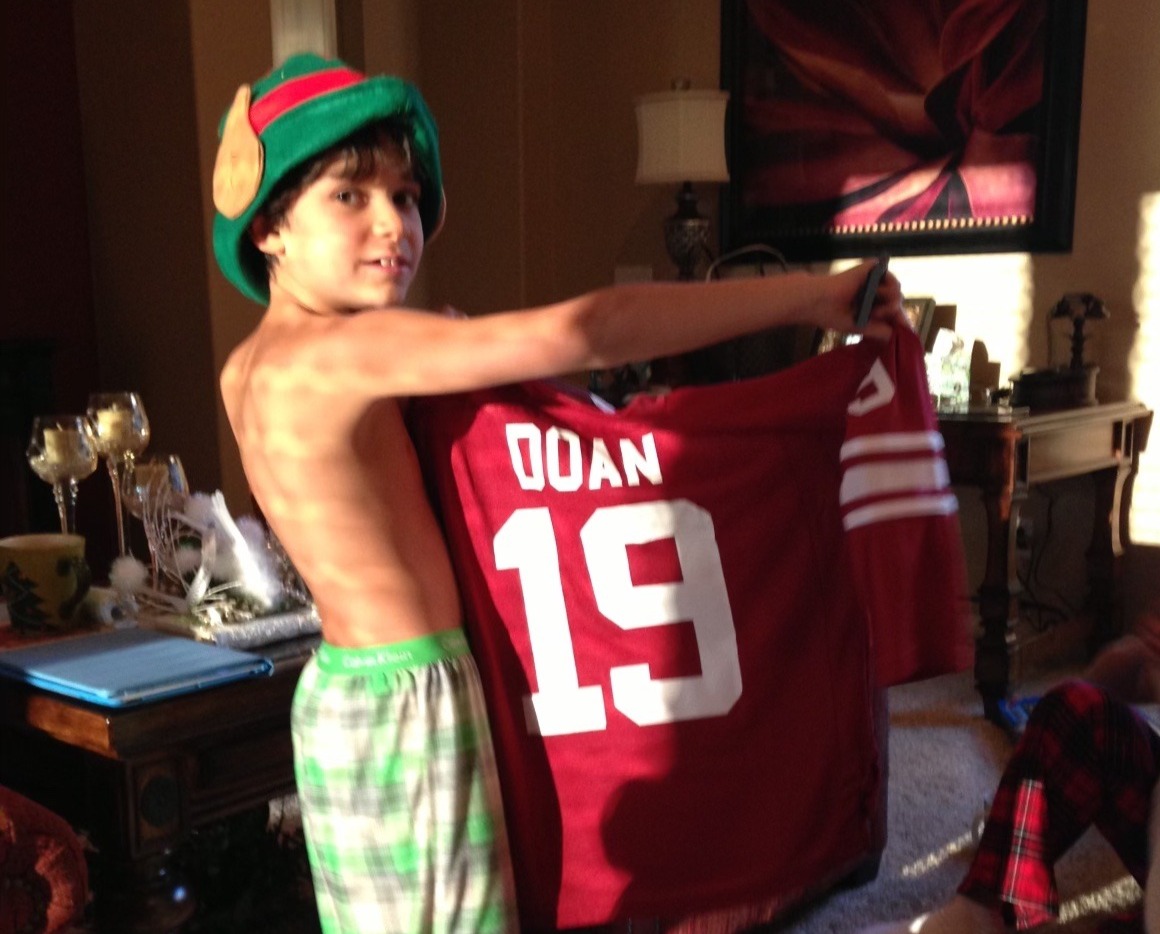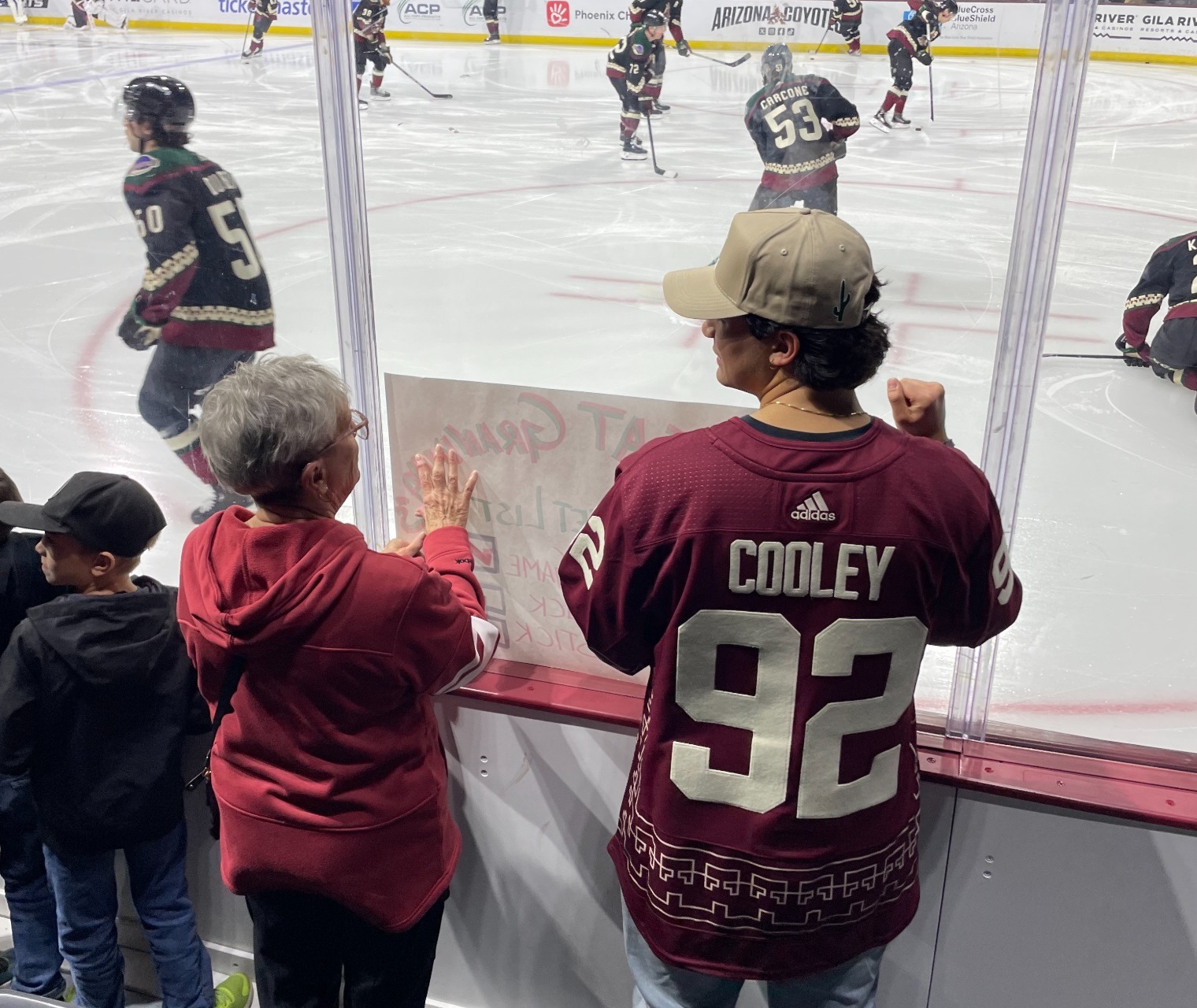
Ice melts in the desert: A letter from a former Coyotes fan
By: Kaiden Brayshaw
As a Canadian visiting Arizona, I couldn’t wait to be around other Coyotes fans, to finally experience what the Flames fans in Calgary had always had. During my first game in Gila River Arena, I heard one of the only other people in my section sarcastically remark, “It’ll definitely be sad when they leave this place," while gesturing to the lone banner that hung in the rafters.
I couldn’t understand why he would say that about the team whose jersey he was wearing, whose game he paid money to see. Why was he certain the team would leave, so willing to discredit the only piece of team success the franchise had seen? This wasn’t the fun; community experience I was expecting at all.
When I was in Phoenix I wanted every Coyotes hat, shirt or jersey I could find. Clothing and sports stores across town were littered with Cardinals, Suns and Diamondbacks merchandise, but Coyotes gear? No dice.
I came to understand that, unlike in Canada, hockey is not a fact of life in the desert. Most people didn’t have the opportunity to play growing up and instead, they focused on other sports. An under-performing-on-ice product fractured an already unstable fan base, so aside from a few diehard fans, the team ended up forgotten and often mocked by its hometown crowd.

Since the NHL officially left Arizona in April 2024, a handful of groups have kicked the tires regarding bringing the team back. On paper, the valley looks like an appealing Hockey market, already containing a team in three out of the four major North American sports leagues and home to over 1.6 million people. It’s understandable why Phoenix would be on the short list for NHL expansion. As it currently stands, potential investors or owners shouldn’t touch this market with a 10-foot pole.
Following its move from Winnipeg in 1996, the club endured decades of in-house turmoil. The Coyotes had half a dozen owners, including being owned by the league itself. Under these multiple ownership groups, the team dealt with bankruptcy and was publicly accused of failing to pay bills by both the city of Glendale and various hotel chains across North America. Owning a sports team isn’t passive income. It isn’t an investment. It’s a passion.
Prioritizing winning, building high quality facilities and actually cheering for their team, a large amount of care is needed when you own a franchise. For the Coyotes, no owner was able to go above and beyond, rarely was the team able to maintain a bottom line and their entire existence was half-assed.
In a popular series of YouTube videos called Hockey 101 with Professor Paul, Coyotes forward Paul Bissonette performed “streeter” interviews with passing by citizens in Phoenix. For the most part, these people had little to no Hockey knowledge, or care for the sport. Most of the interviews concluded with Bissonette gifting free tickets to these passersby. Handing out tickets was one of many attempts made to draw fans to Coyotes games, yet between the 2007-08 season and the 2018-19 season, the Coyotes consistently ranked in the bottom 3rd of the league for average per-game attendance.
Teams in non-traditional hockey markets can succeed. The Vegas Golden Knights, Tampa Bay Lightning and Florida Panthers have all won at the highest level and have built a legacy in their respective cities. But franchises can’t succeed on their own, they need to build themselves into the community, not outside of it.
The Coyotes' main rival was never an on-ice opponent, nor was it their lackluster fan base, their main enemy was themselves. Throughout their 28-year existence, the club never found their home.
Without an owner dedicated to winning, a revitalized community excited for NHL hockey and some very deep pockets, don’t bring the Coyotes back to Arizona. It isn’t worth the heartache.
Post a comment